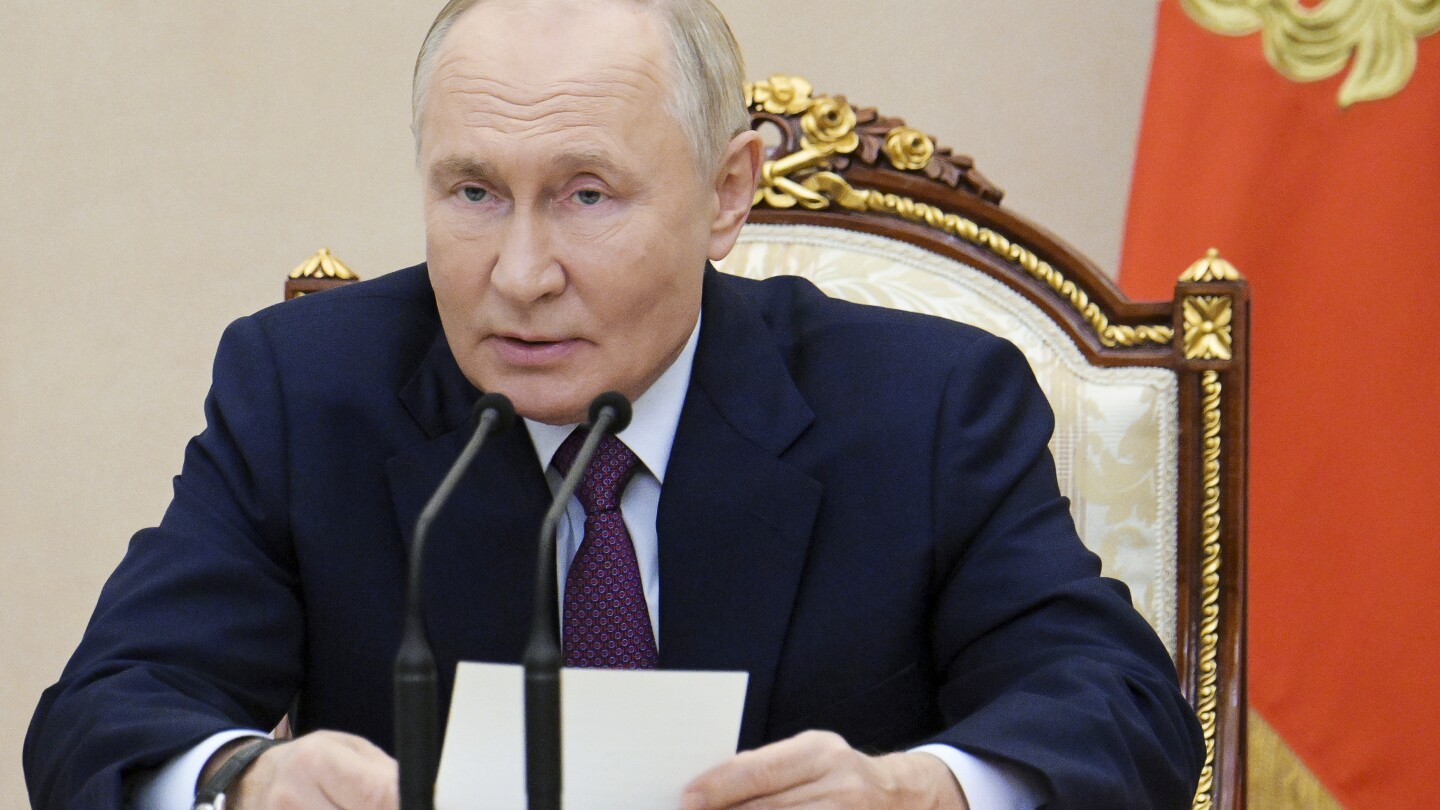MOSCOW (AP) — Changes in Russia’s nuclear doctrine are intended to discourage Ukraine’s Western allies from supporting attacks on Russia, the Kremlin said Thursday.
The Kremlin spokesman Dmitry Peskov told reporters that the revisions in the document announced by President Vladimir Putin are a “warning signal to those countries about the consequences in case of their involvement in an attack on our country with various assets, not necessarily nuclear ones.”
In a strong, new warning to the West, Putin said Wednesday that any nation’s conventional attack on Russia that is supported by a nuclear power will be considered a joint attack on his country.
The threat, outlined in a revision of Moscow’s nuclear doctrine, was clearly aimed at discouraging the West from allowing Ukraine to strike Russia with longer-range weapons and appears to significantly lower the threshold for the possible use of Russia’s nuclear arsenal.
Speaking during Wednesday’s Security Council meeting that discussed changes in the nuclear doctrine, Putin didn’t specify whether the modified document envisages a nuclear response to such an attack, but he emphasized that Russia could use nuclear weapons in response to a conventional assault posing a “critical threat to our sovereignty,” a vague formulation that leaves broad room for interpretation.
Russia is making slow but steady gains in Ukraine as the conflict grinds through its third year, and the Kremlin is seeking to discourage stronger Western support for Kyiv.
Ukraine has repeatedly struck Russian territory with missiles and drones in response to Moscow’s attacks, and Ukrainian President Volodymyr Zelenskyy has been pushing the U.S. and other Western allies for permission to use the longer-range Western weapons to strike deep inside Russian territory. The Biden administration has said it hasn’t given Kyiv permission for strikes with American weapons deep inside Russia.
Putin noted that the revised doctrine spells out conditions for using nuclear weapons in greater detail, noting that they could be used in case of a massive air attack. The new phrasing holds the door open to a potential nuclear response to any aerial attack — a deliberate ambiguity intended to make the West more reluctant to allow longer-range strikes.
Since Putin sent troops into Ukraine in 2022, he and other Kremlin voices have frequently threatened the West with Russia’s nuclear arsenal to discourage it from ramping up support for Kyiv.
Earlier this month, Putin warned the U.S. and other NATO allies that allowing Ukraine to use Western-supplied longer-range weapons to hit Russian territory would put Russia and NATO in a direct conflict.

